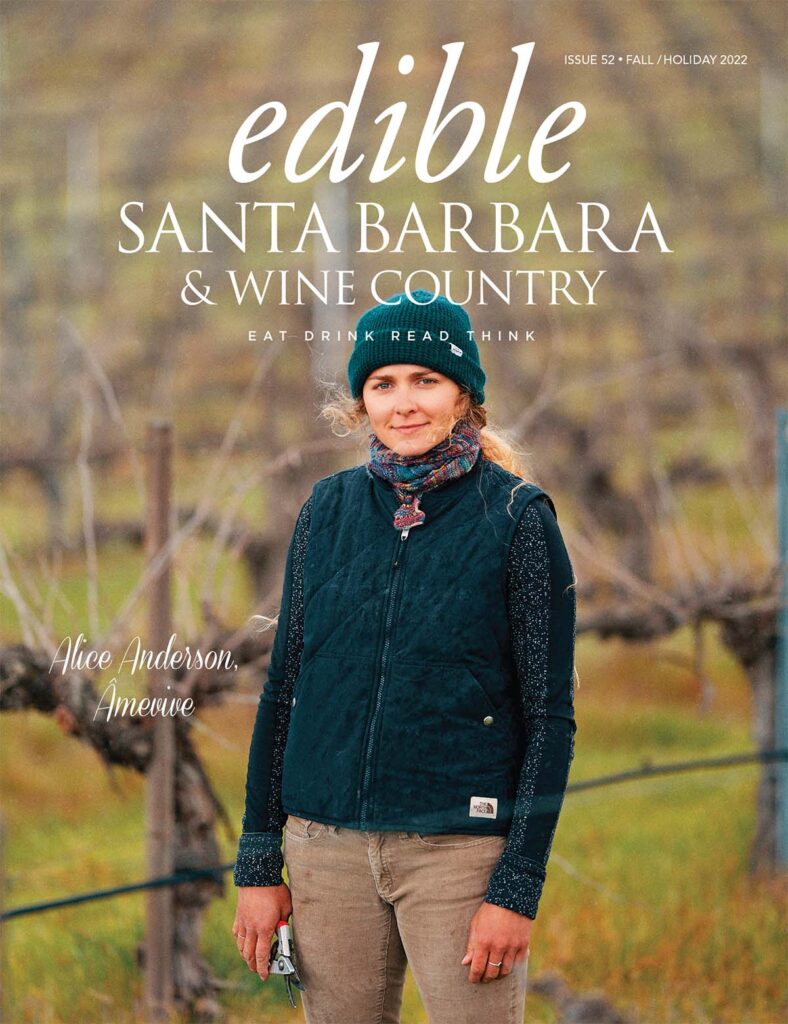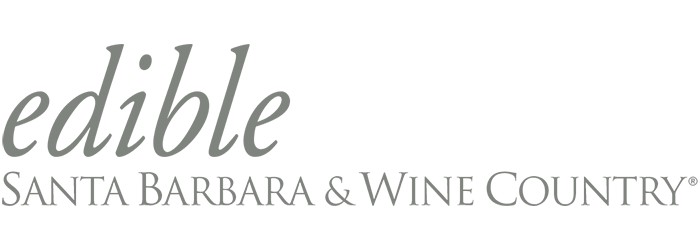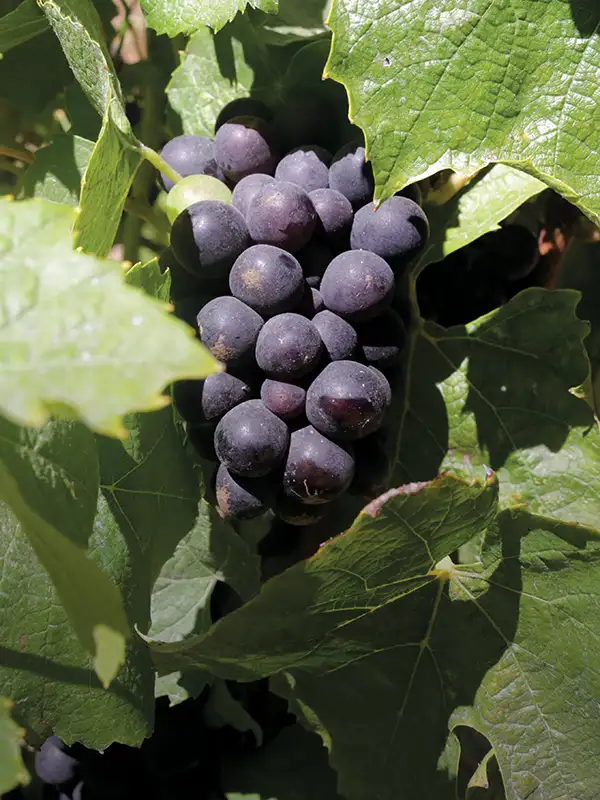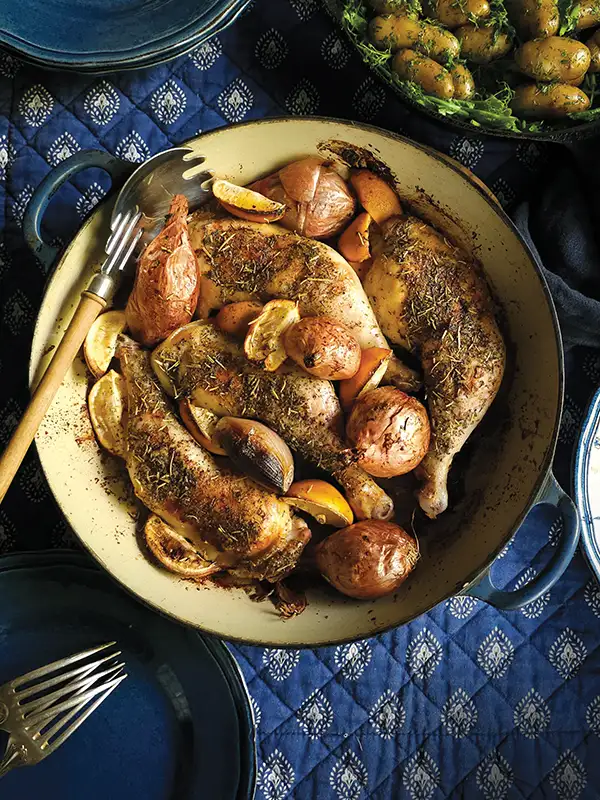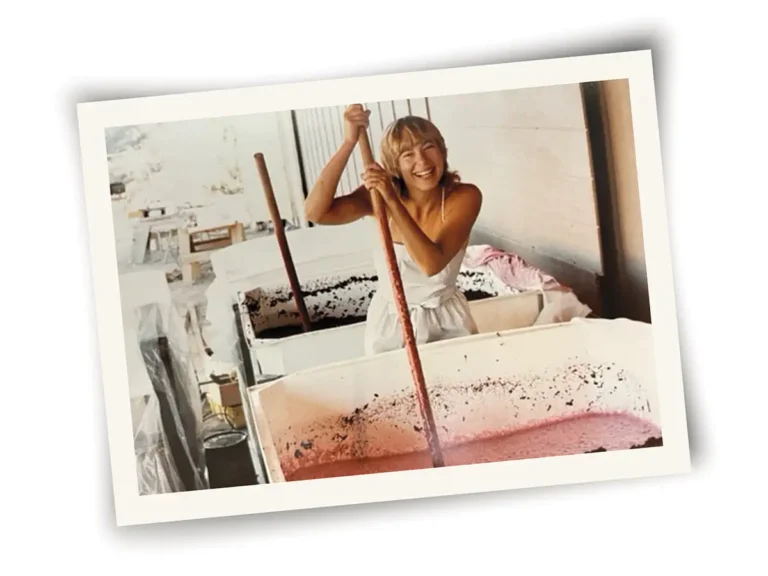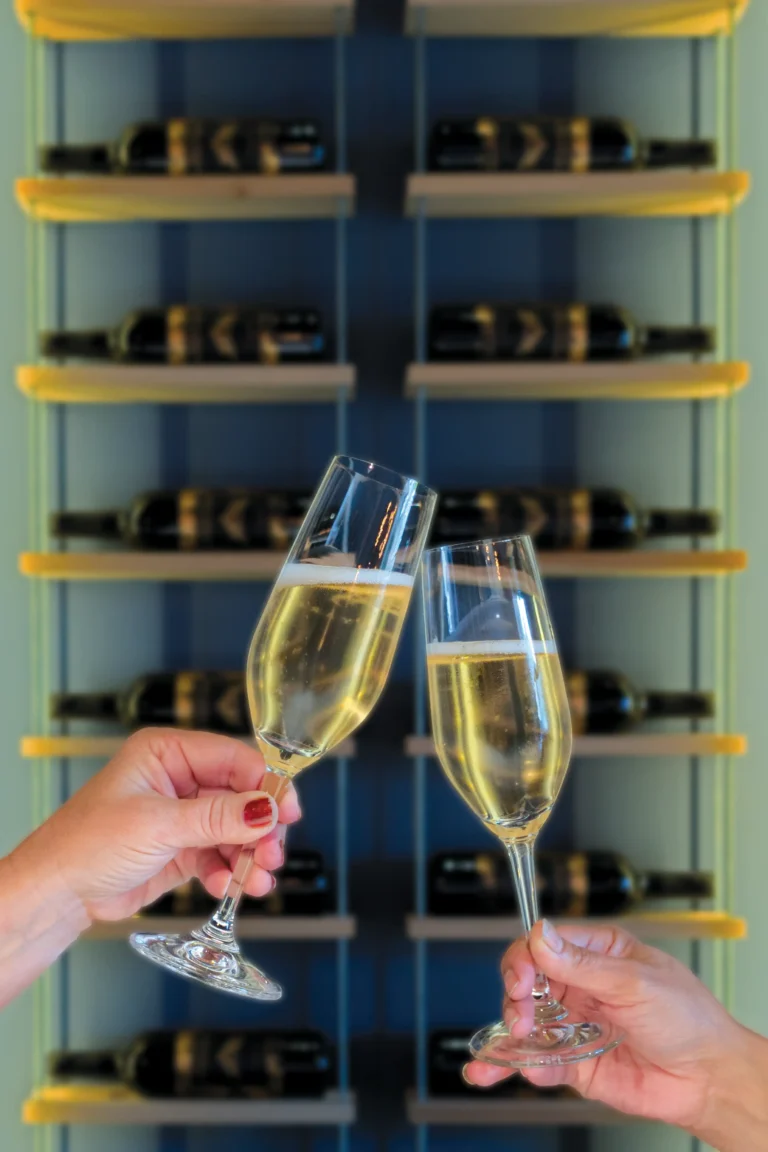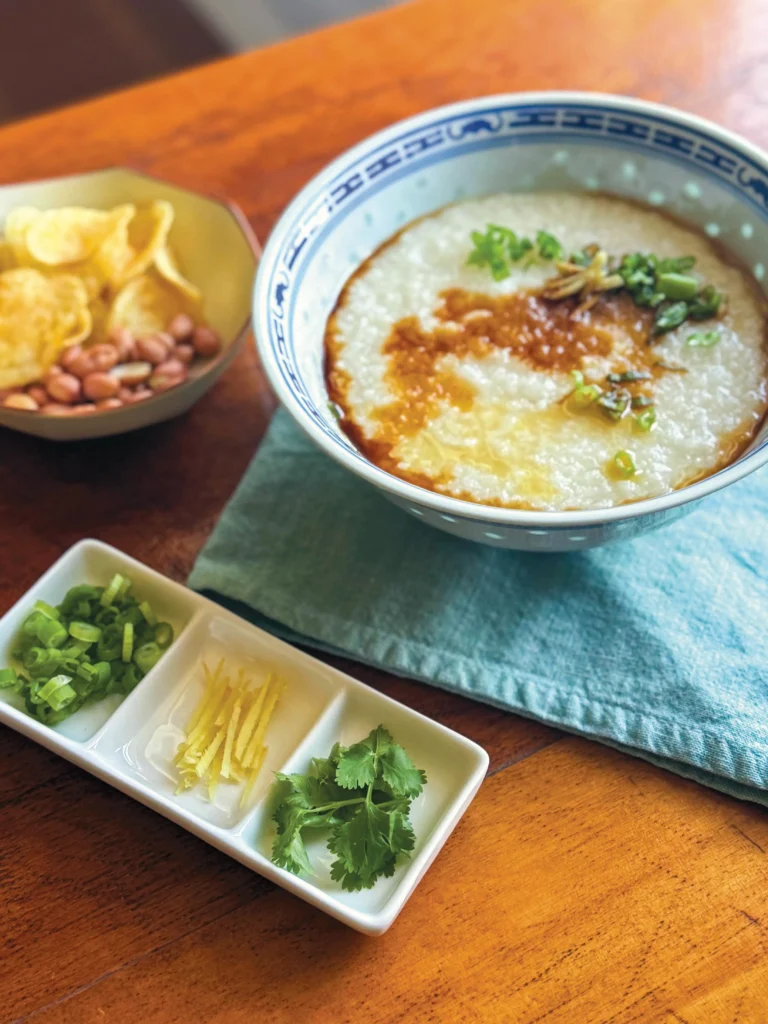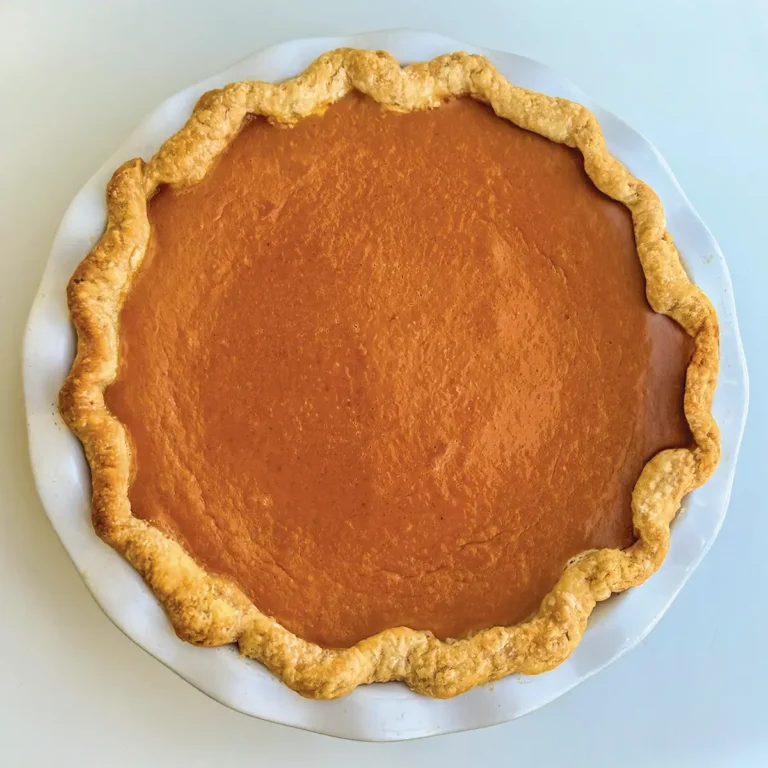A Soulful Connection to the Land
[Photography by Summer Staeb and Max Threlfall.]
Alice Anderson uses regenerative farming to produce consciously made wines.
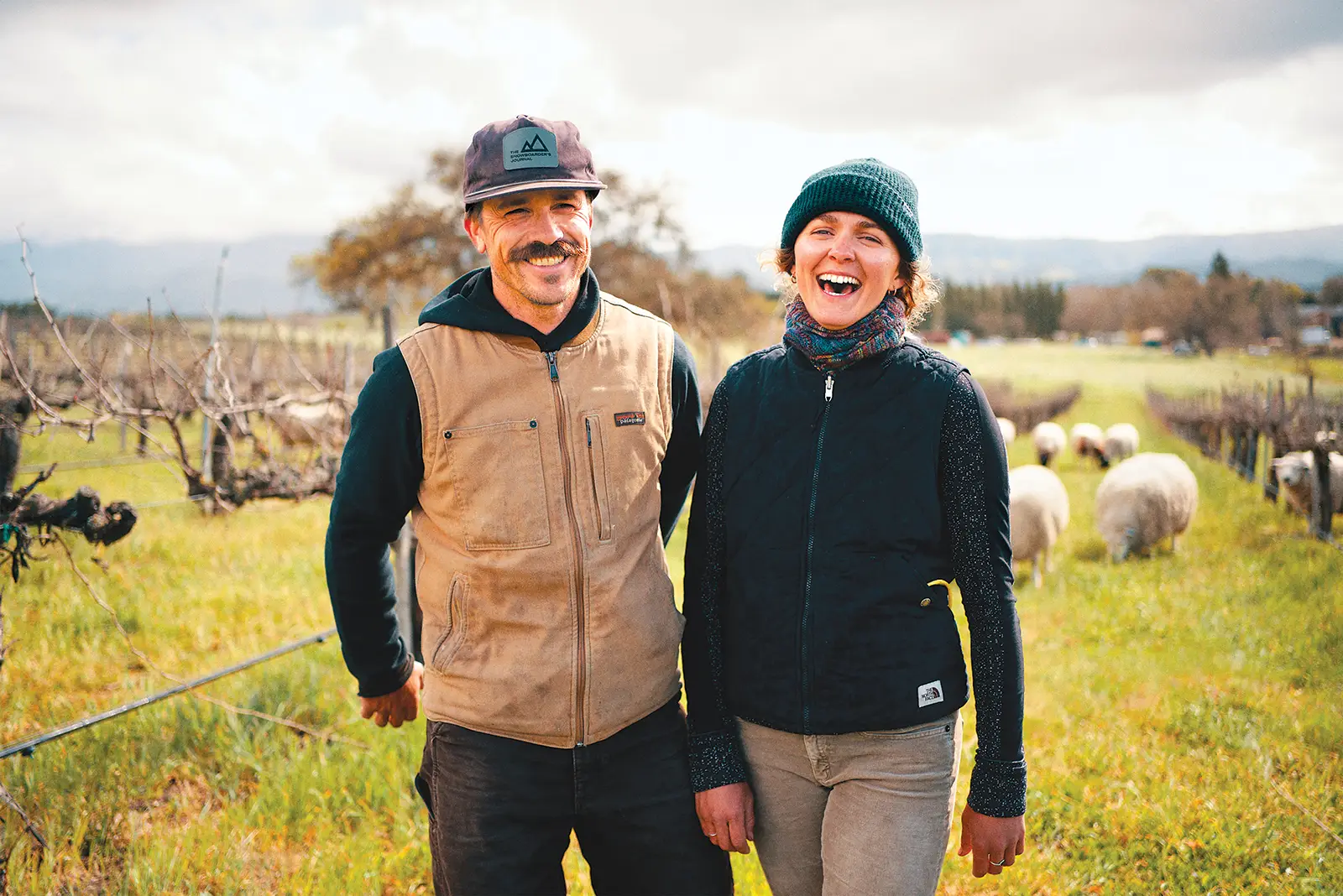
Most people would argue that quality farming is an essential part of producing good wine. As the saying goes, “You can make bad wine from good grapes, but you can’t make good wine from bad grapes.”
The seamless connection between farming and winemaking is a substantial reason why many winemakers take special care to source fruit from vineyards that are farmed in a way they respect and agree with. To further strengthen that connection, some producers choose to farm their own grapes—much like they do in many Old World wine regions—which allows them to have direct control over how the grapes are grown. Alice Anderson is one such young producer.
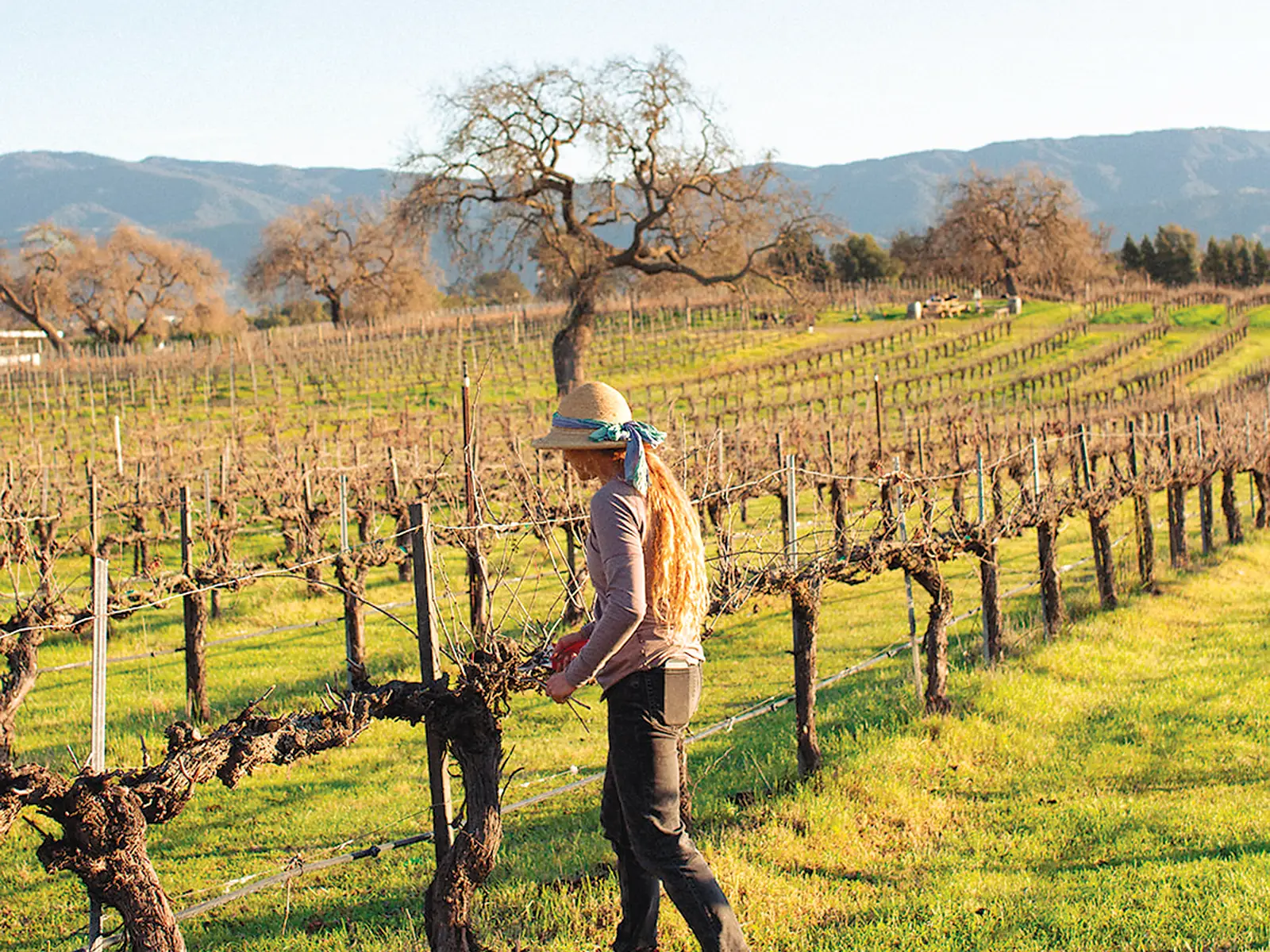
As farmer and winemaker for her small label Âmevive (pronounced “AHM-veev” and meaning “lively soul”), made from grapes she regeneratively farms at the Ibarra-Young Vineyard, Alice is proving you don’t need a family farming heritage or even decades of experience to grow and make conscious wines of quality. You just need a lot of “passion, respect for the land and definitely a bit of grit,” she says.
Alice grew up in Modesto, where she constantly surrounded herself with horses and farm animals. While attending Cal Poly to study agriculture, she took a viticulture class that changed the trajectory of her studies, leading her to pursue a Wine & Viticulture degree. Upon graduating, she traveled to New Zealand to work a vintage at the family-owned Rippon Vineyard, where she got her first taste of biodynamic viticulture.
After a year in New Zealand, Alice headed to France to work at Domaine Pierre Gaillard in the Northern Rhône, where she would spend the next two years. “France is where I first fell in love with wine, but it’s also where I first identified with the ‘grow your own food, grow your own grapes’ mentality,” she says. “It’s where I first felt the importance of the relationship between a farmer and a winemaker and where I first felt drawn to be fully connected with the land that my wine grapes grow on.”
Empowered by local friends around her age who planted their own vineyards and started their own wine brands, she headed back to the States, zeroing in on the Central Coast to further develop her craft, with the goal of one day growing grapes for her own label.
Back in California, Alice spent time working at Tyler Winery under Justin Willett, who taught her the “importance of precision and being intentional in the cellar,” she says, followed by a harvest at A Tribute to Grace with Angela Osborne, who showed her how to trust her “emotions and intuition.”
Since 2019, Alice has been with Graham Tatomer, working as assistant winemaker for his eponymous label focused on Austrian varietals. “I’ve been able to take knowledge from my varied experiences with different producers and apply it to my current work, but Graham has taught me invaluable lessons about the business side of things,” she explains. “He’s been an inspiration as a winemaker and business owner, and is always willing to share his insights.”
During her first year with Tatomer, Alice discovered the Ibarra-Young Vineyard, located in the Los Olivos District AVA of Santa Barbara County. That same year, she launched her own label, Âmevive, for which she produced small amounts of Rhône varietals, including from Ibarra-Young. Just one year later, the stars aligned when she took over the lease for Ibarra-Young.
First planted in 1971 by Charlotte Young and vineyard manager Miguel Ibarra, followed by plantings in 1973, Ibarra-Young Vineyard was leased from 1986 to 2018 by Bob Lindquist, who started employing organic farming practices in the 1990s. Just 10 acres in its entirety, this small but mighty vineyard is home to own-rooted Syrah, Mourvèdre, Marsanne, Graciano and Tempranillo.
Since taking over the lease of the vineyard, which is still owned by the Young family, Alice along with her business and life partner, Topher De Felice, have been devoted to turning Ibarra-Young into a regeneratively farmed property, driven by intense earnestness and a shared holistic vision. Working in conjunction with nature, they farm with respect to the entire ecosystem in order to increase biodiversity and soil health, which ultimately eliminates the need for synthetic fertilizers and pesticides, is healthier for the land, and reduces their carbon footprint.
“Our goal is to rebuild an ecosystem of native species that live alongside our vine rows, regenerate soil health and grow the highest-quality grapes this site can give,” says Alice. “We believe the best wine grapes are grown with holistic inputs and non-dogmatic vineyard management.”
Using compost as an essential building block for achieving balanced soil health at Ibarra-Young, Alice and Topher make several of their own biodynamic composts, which, she explains, give the vines “the proper soil microbial balance in order to make nutrients more available to our vine roots.” She adds, “We also make a compost used as a foliar tea spray to inoculate our vineyard canopy with a healthy colony of microbes to grow with the canopy as it grows. This helps with the vines’ natural immunity and deters leaf feeders from finding the vines.”
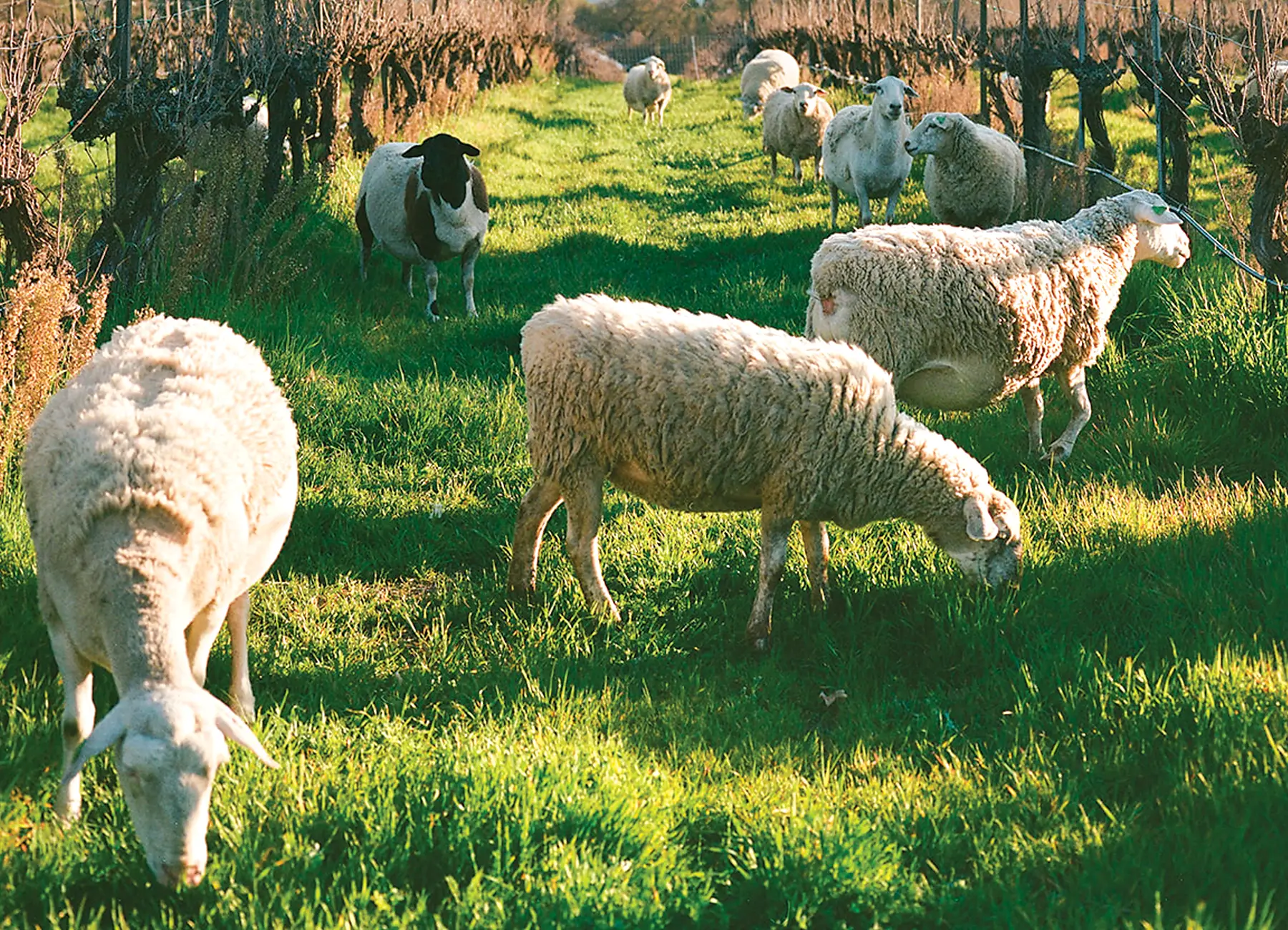
Incorporating animals is another vital part of their soil health and land stewardship plan. “We actively rotate chickens, sheep and ducks throughout the vineyard, and we are completing our fourth year of no till,” she says. “We’ve also built large owl boxes, an important aspect of our healthy no-till vineyard, as the owls prey on gophers and mice, making them important employees on the vineyard team. And bluebird boxes and bat boxes are going to be installed soon!”
For Âmevive, it’s not surprising that Alice takes an equally thoughtful approach to producing wines she describes as “energetic, soulful and made in a playful California fashion.” Unfined and unfiltered, the wines are lively, layered and full of soul, harmoniously capturing the essence of their French name.
While Alice sources grapes from other vineyards throughout Santa Barbara County, the majority of her 1,200–1,600 case production is dedicated to highlighting the nuances of Ibarra-Young. From her Syrah to Marsanne, the wines reveal the wild, natural soul of the property through what’s inside (and outside) the bottle. Not to be overlooked, the beautiful labels—featuring artwork by Alice and her mom—depict the native flora and fauna of the vineyard, painting a visual, quite literally, of where the wine is from.
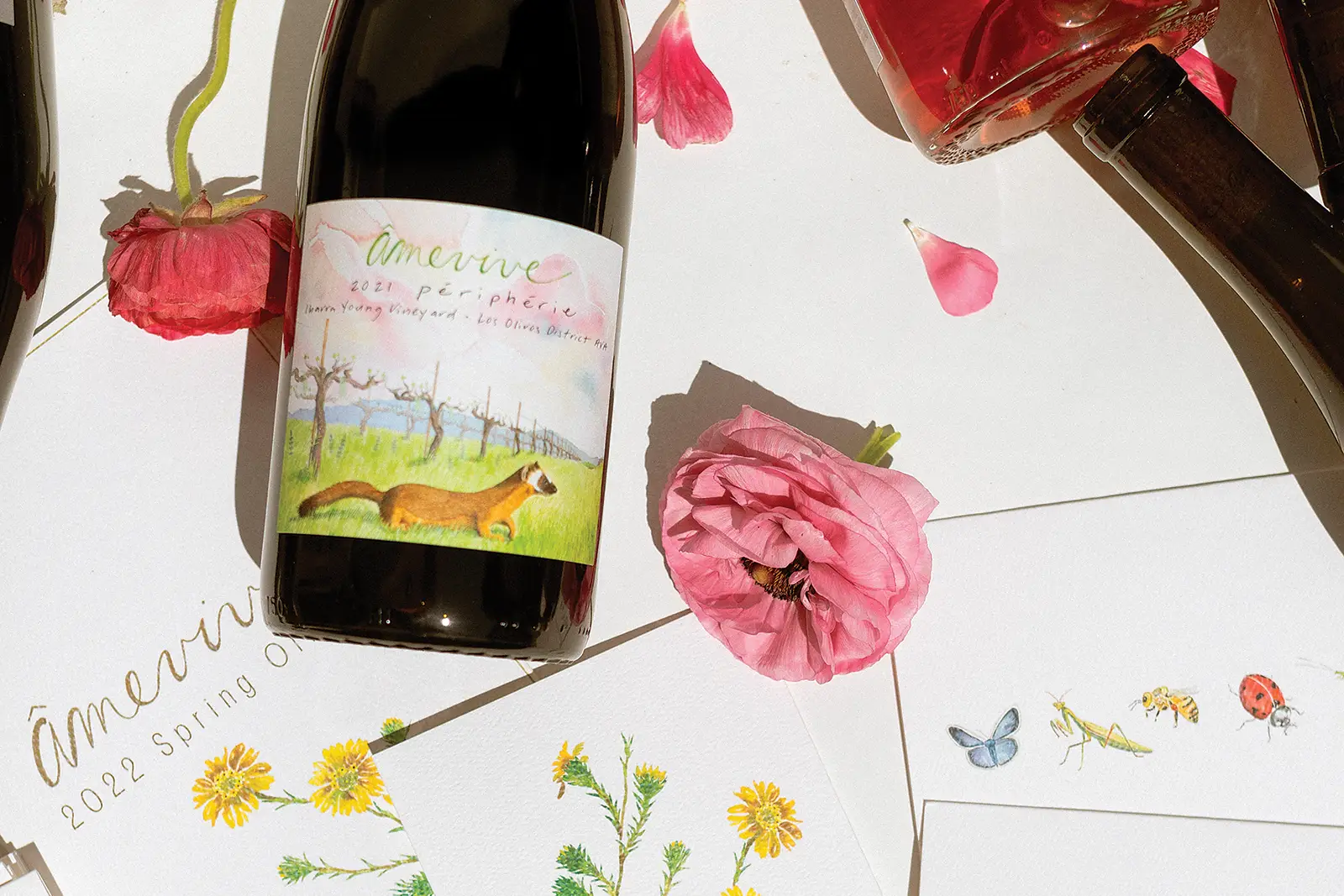
“We truly believe that there are many ways to farm consciously. This is our way,” says Alice. “It’s an honor to be able to farm this magical vineyard and make wines the way we want to make them. It’s physical, it’s agricultural, but it’s also an art form to express the land and wines that make me happy. We hope it all translates into each bottle.”
